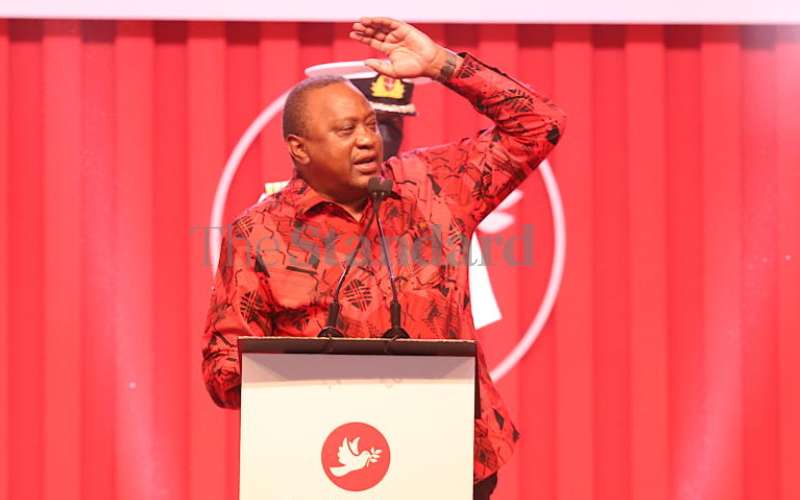×
The Standard e-Paper
Kenya’s Boldest Voice

President Uhuru Kenyatta at KICC during Jubilee Party NDC, February 26, 2022. [Denish Ochieng, Standard]
It is public knowledge that Deputy President William Ruto has caused a great deal of distress and discomfort to President Uhuru Kenyatta.